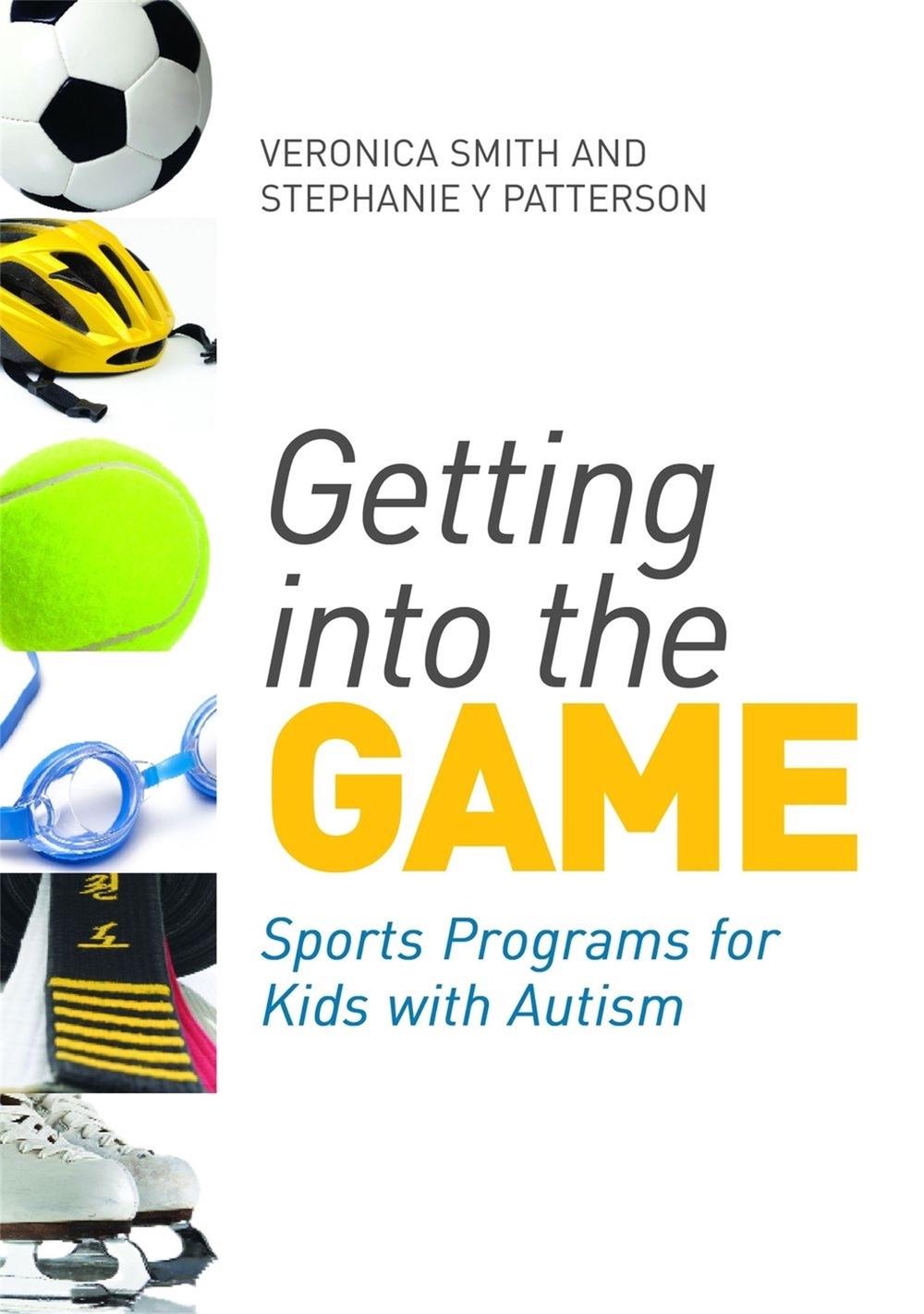
Getting into the Game
Sports Programs for Kids with Autism
$62.24
- Paperback
256 pages
- Release Date
14 July 2012
Summary
Getting into the Game: Sports Programs for Kids with Autism Spectrum Disorder will help families, clinicians and coaches support children with autism in taking their first steps into sport and recreation.
Participation in individual and team sports plays an important part in children’s development and promotes growth in a number of areas. As well as the obvious health benefits, sport also provides the perfect backdrop to teach young people with autism about rules, strategy and teamwor…
Book Details
| ISBN-13: | 9781849052498 |
|---|---|
| ISBN-10: | 1849052492 |
| Author: | Veronica Smith, Vivian Ng, Connie Kasari, Stephanie Patterson, Janine Halayko, Laura Dumas, Richard K. Spurling, Shafali Spurling Spurling Jeste, Jonathan Rivero |
| Publisher: | Jessica Kingsley Publishers |
| Imprint: | Jessica Kingsley Publishers |
| Format: | Paperback |
| Number of Pages: | 256 |
| Release Date: | 14 July 2012 |
| Weight: | 556g |
| Dimensions: | 243mm x 173mm x 12mm |
What They're Saying
Critics Review
Read in its entirety or as a handy reference, Getting into the Game offers a positive mindset and a toolkit of ideas to ensure that children with autism can engage in and love sport.’Your Autism Magazine‘The author understands the challenges face by individuals with autism and the need for clear, visually-supported teaching strategies that lead to success. I’d definitely recommend this book.
– Netbuddy.co.ukWritten in a friendly voice that is readily accessible to both professionals and families, Getting into the Game offers concrete suggestions for including people with autism in sports and other physical activities. The authors clearly understand both the challenges faced by individuals with autism and the need for clear, visually-supported teaching strategies that lead to success. This is a ‘must-have’ book for parents, teachers, and coaches who are dedicated to the eradication of ‘couch potato syndrome’ as a side effect of autism! – Dr Pat Mirenda, Professor in the Department of Educational and Counselling Psychology and Special Education, University of British ColombiaAs a gymnast with Asperger syndrome, I have had to overcome many of the issues highlighted in Getting into the Game. I was very fortunate to start gymnastics at the age of 3 and so I am testament to the fact that sport can help young people with autism spectrum disorders overcome fears and difficulties in all aspects of their lives. I would highly recommend this book to parents or teachers who have children with autism. It is full of information and advice that will help readers gain a better understanding of ASD and how to introduce and teach sport to children on the spectrum.’‘Philip Davis, 26, gymnast, - Special Olympics - silver medallist (Athens, 2011), former Senior and Junior British Champion (2005, 2002) and coach at the Croydon School of Gymnastics‘Getting into the Game is an essential reference for any parent or professional considering the opportunities and benefits sport can bring to children with autism. Over the past two decades, I have witnessed many thousands of profoundly disabled children participate in sailing around the UK. Without exception, there are benefits to be gained for all involved in any sport; the child, the providers and the family. You don’t need any special qualification to see those benefits, but it is useful to have a reference like this book that explains the process of accessing and participating in different sports.
– Geoff Holt, MBE, ex-professional yachtsman and disability sports ambassadorThis book importantly provides strategies for engaging children with Autism Spectrum Disorder (ASD) and other disabilities in sporting activities. It offers needed, practical information for parents, coaches, teachers and others. The reader is guided to consider sport as a means to physical fitness, community engagement and quality of life. The book is an important contribution in building ‘welcoming’ communities, and critically addressing under-studied opportunities in sport for persons with ASD. A highly recommended read! – David Nicholas, associate professor, faculty of social work, University of CalgaryCanadian Sport for Life (CS4L) would like to express its support and enthusiasm for the authors’ expertise in writing ‘Getting into the Game - Sports Programs for Kids with Autism.’ This book reflects what we believe to be the important, key messages regarding increasing the activity levels of kids. We believe this work assists the way professionals lead and deliver sport and physical activity in Canada and other nations, and will contribute to its overall improvement, resulting in a healthier population. – Richard Way, Project Lead, Canadian Sport for LifeAbout The Author
Veronica Smith
Veronica Smith has been a professor of Special Education for the past seven years. She has a speciality in autism and developmental disabilities and has published several articles on intervention and evidence-based instructional practices for children with autism. She is an active amateur athlete who is committed to fitness and believes in the benefits of lifelong physical activity. Veronica lives in Alberta, Canada.
Stephanie Patterson is a certified professional figure skating coach (National Coaching Certification Program Level 1) and doctoral student focusing on intervention practices for children with ASD. She has developed and delivered a modified learn to ice skate program for youth with ASD. Stephanie currently lives is Los Angeles, California.
Returns
This item is eligible for free returns within 30 days of delivery. See our returns policy for further details.




